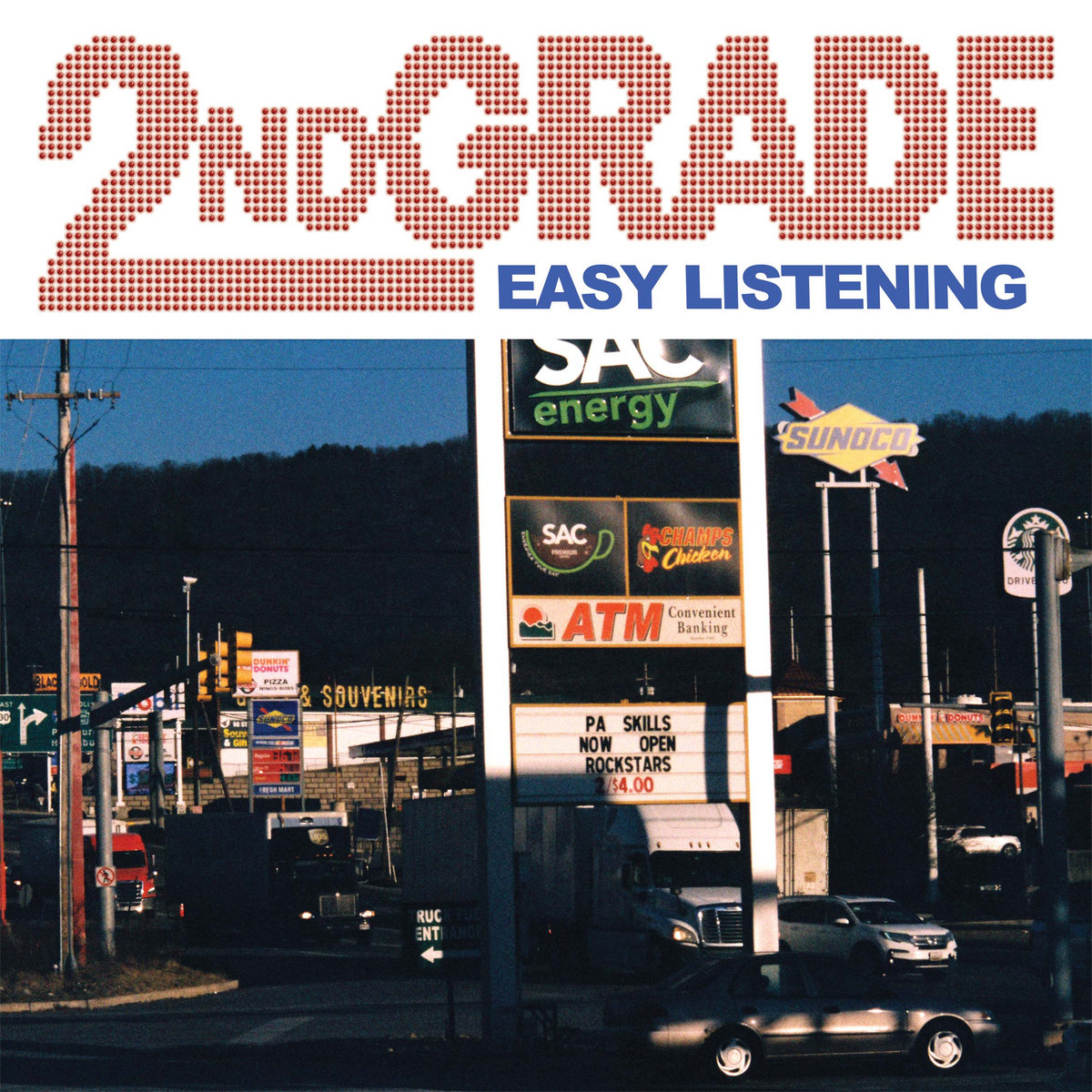2nd Grade
Easy Listening
DOUBLE DOUBLE WHAMMY
The criticism commonly levied against power-pop is that it’s too homogeneous. There’s a lack of diversity—a Friends-esque approach—to the instrumentation (sparkly guitars), to the lyrics (literal and earnest), and even to the song lengths (short). But not all uncomplicated guitar music has to sound like “Sparky’s Dream,” as demonstrated by contemporary subgenre figureheads such as Kiwi Jr. and Ducks Ltd. Another band that’s aware of this is 2nd Grade. With Easy Listening, the Philadelphia five-piece succeed in producing a multidimensional record that encompasses the guitar-pop gamut, all the messy layers of human emotion, and a healthy dose of stars-and-stripes ephemera—the perfect accompaniment to the first weeks of a mid-Atlantic fall.
Easy Listening is an American record, after all, and 2nd Grade are an American band. Not in the Grand Funk Railroad or Zac Brown Band sense. But with the Blue Angels air shows and American-made telecasters, the jukeboxes and nods to blue-collar icons (“Learning to fly and free fallin’;” “Like when Bruce did the spoken-word bit In ‘Street Hassle’”)—2nd Grade’s nation is foregrounded in their music. Take the distinctly American brand of optimism and ambition that characterizes the album’s opening gambit: “We’re on the cover of Rolling Stone,” band leader Peter Gill sings over burly power chords that land like KO blows from a certain Philly film icon. Because this is an American record, though, on the flip side of his sure-footedness is a contradictory viewpoint. “The back half of the B-side is where we belong,” Gill sings on the penultimate track, referencing the struggle of DIY bands while “smiling for a camera that isn’t there.” For all his attempts at manifesting success, reality follows close behind.
Between its auspicious kick-off and the sober realism of the album’s final moments, Easy Listening covers a duality of feelings—Gill goes from “strung out” to “strung up” a song later—and, notably, production styles. Tracks such as “Teenage Overpopulation” and “Me & My Blue Angels” possess a sonic acuity and put the “power” in power-pop with their crisp guitars and clean-cut vocals. Contrasting these are songs that pass like blurry VHS tapes. “Kramer in LA” is a strangely affecting eulogy to Seinfeld, New York City, and old friends, told from the POV of Jerry’s frizzy-haired neighbor and accompanied by a single guitar that crackles through a blown-out amplifier. “Hand of the Brand” and “Poet in Residence” are similarly lo-fi, resembling unpolished demos that nevertheless feel as complete as the sleek, full-band offerings.
“Wouldn’t It Be Nice to Let It Be”—ostensibly a portmanteau of two influential pop standards—is the bridge between these two worlds, its reposed open chords channeling all the poignancy of Gill’s pleas: “Wouldn’t it be nice to let it be / Let your hair hang down,” he asks in a picnic-blanket murmur, “Nothing to do here, nothing to see / Nothing to cry about.” It’s no wonder Gill and his band feel an affinity with Seinfeld, a show famously labeled as being “about nothing,” though really being about everything. With its literalism, immediacy, and relatability, Easy Listening takes the same approach. It may give us nothing to cry about, but there’s still plenty to see. And maybe it’s real enough to lie on your back, gaze at the stars, and whisper into your companion’s ear, “We’re on the cover of Rolling Stone.”









